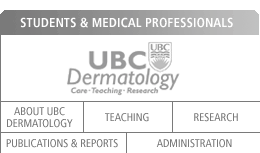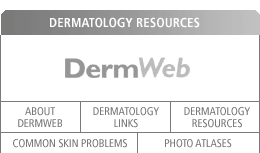|
 |
 |
 |
Continuing Medical Education (CME) helps to keep dermatologists up-to-date and is a standard ongoing process for dermatologists to keep abreast of new advances and new techniques in the field. This is accomplished through special courses, participation in symposia, lectures and seminars organised by certified educational institutions.
This professional development supports a wide range of areas including:
- clinical education
- practice management
- ethical decision-making
- evidence-based care
- managed care principles.
Is the work of dermatologists changing?
Dermatology is constantly adapting itself to meet the changing medical challenges of our society. New drugs may cause unusual side effects that are manifested in skin conditions; pesticides, industrial compounds and cosmetics continually pose new dermatological problems that need to be researched, addressed, and treated. More leisure time and outdoor work has increased the exposure to the sun which has in turn increased incidence of skin cancer, and so new early detection methods are being tested and public education campaigns are being led by dermatologists.
How do I see a dermatologist?
The most common way for a patient to see a dermatologist in Canada is to receive a referral from another physician. If you believe you have a skin condition or illness you may contact the Skin Care Centre directly; however, there may be a minor surcharge for bypassing the standard referral protocols. If you have a skin condition that is cosmetic in nature, you may contact the Skin Care Centre for consultation. The consultation fee will be quoted at the time of booking your appointment.
|
|
 |
|

